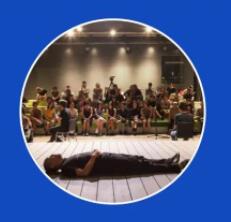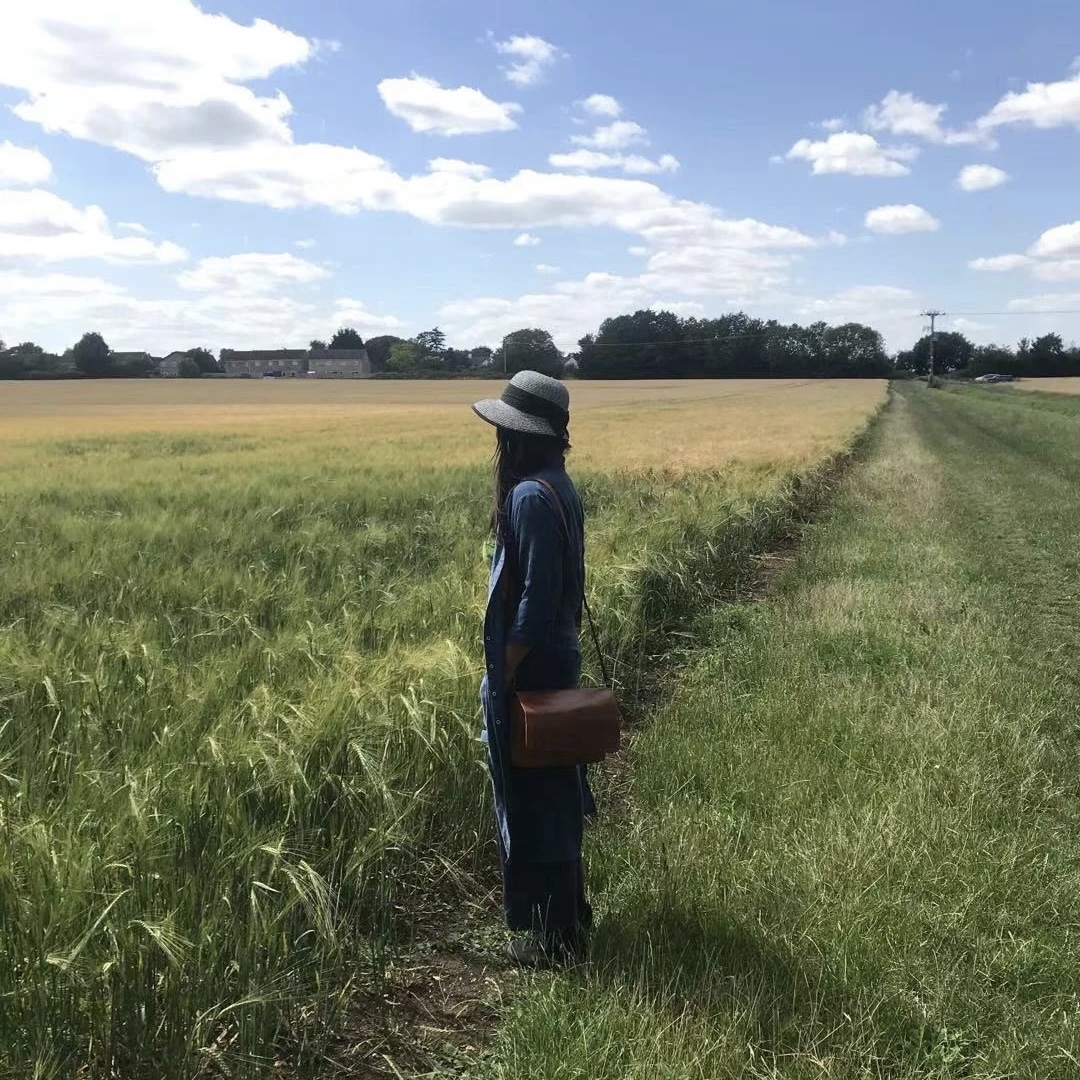Classes
课程
︎
翻译
Translation
︎
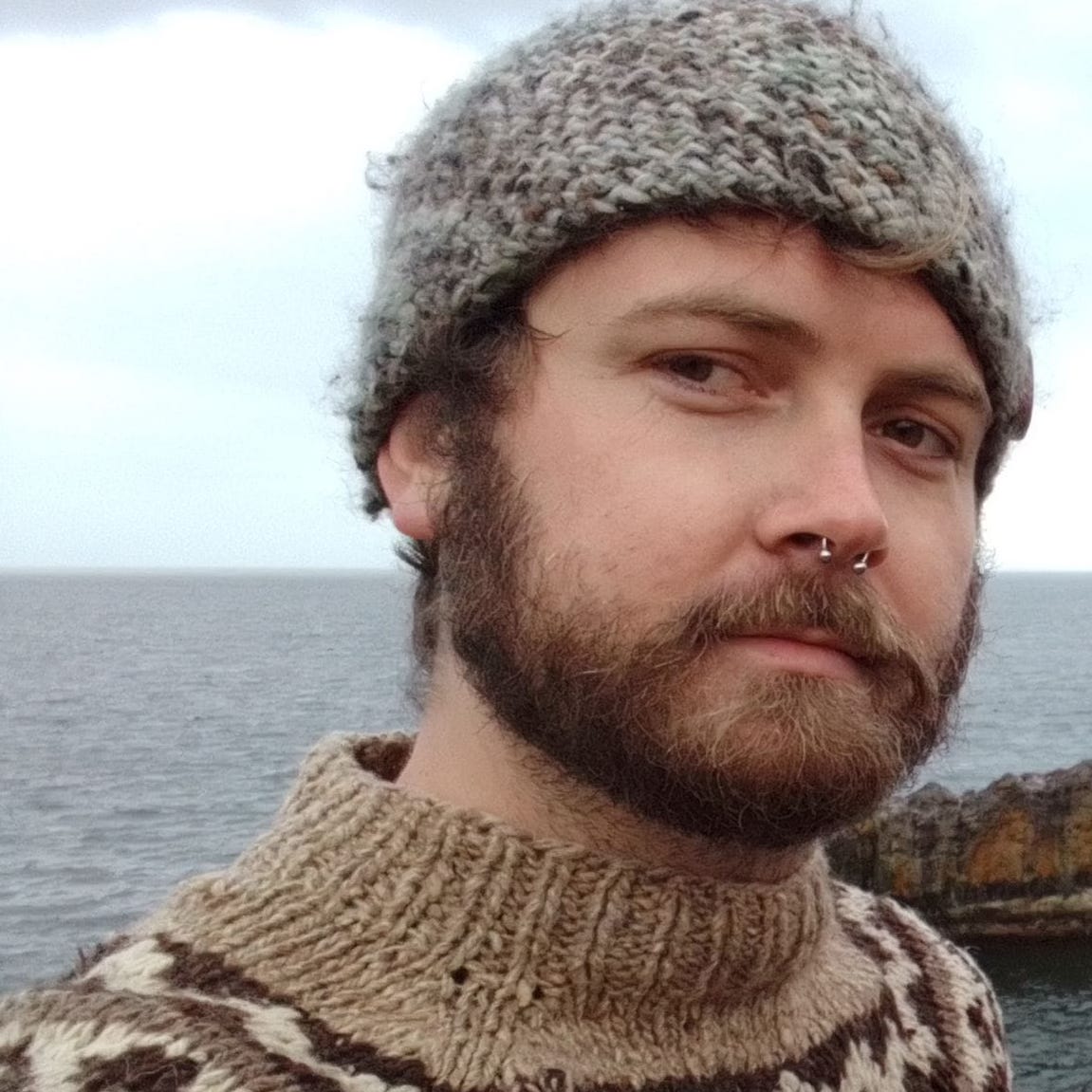
World Literature and Literary Translation with David Brunson
This 6-week online course will serve as an introduction to the art of literary translation. Texts will be translated from a target language into English, so reading proficiency in a second language is required. All languages from all time periods are welcome!
During the course, you will identify a translation project that you would like to explore, then translate texts from that project into English. It will be helpful if you come to the class with a sense of the kind of project, author(s), genre, and language that you might like to translate. Additionally, you will: participate with classmates in translation workshops, read and discuss translated literature from a craft-based perspective, explore foundational concepts of contemporary literary translation, and learn about the publishing process.
By the end of the class you will have a portfolio of translations ready to send out to literary magazines and translation MFA/MA/BA programs, as well as the basic tools and skills to continue the long-term pursuit of literary translation.
*
This class has alreay ended.
David M. Brunson has an MFA in Poetry and Literary Translation from the University of Arkansas, where he received a Sturgis International Fellowship and a Lily Peter Fellowship for his work as a translator. His poetry and translations have appeared in or are forthcoming in Copper Nickel, Washington Square Review, The American Journal of Poetry, The Bitter Oleander, Nashville Review, Asymptote, and elsewhere.
He is the editor of the Spanish-language anthology Una cicatriz donde se escriben despedidas: Poesía venezolana en Chile, published by Libros del Amanecer in Santiago, Chile. His debut volume as a translator, A Scar Where Goodbyes Are Written: The Poetry of Venezuelan Migrants in Chile, is forthcoming from LSU Press in 2023. He is also a Best of the Net nominee, and has been named as a semifinalist in the Cutbank, Iron Horse, and Snowbound poetry chapbook contests. He currently lives in Santiago, Chile.
︎
非虚构
Nonfiction
︎
Creative Nonfiction Workshop with Wang Bang
In this course, we are going to learn the tips for developing your voice in creative non-fiction:
1. A deep dive into the topic;
2. Using your lived experience but fact-check your own life and understand that memory can’t always be trusted;
3. Getting your opinions down and out into the world;
4. Plan the structure in a more playful form, be a time traveler;
5. Mining for details.
Creative non-fiction thrives on the tension we often experience in novels, short stories or dramas. It belongs to those who have an irresistible urge to tell the truth to the world, and to be authentic. If you believe this is the voice you are seeking, come to my class, let’s share what we have written and what we are going to create, and most importantly, what we can do to turn the world into a less gloomy place by the power of writing.
*
This class has alreay ended.
In this course, we are going to learn the tips for developing your voice in creative non-fiction:
1. A deep dive into the topic;
2. Using your lived experience but fact-check your own life and understand that memory can’t always be trusted;
3. Getting your opinions down and out into the world;
4. Plan the structure in a more playful form, be a time traveler;
5. Mining for details.
Creative non-fiction thrives on the tension we often experience in novels, short stories or dramas. It belongs to those who have an irresistible urge to tell the truth to the world, and to be authentic. If you believe this is the voice you are seeking, come to my class, let’s share what we have written and what we are going to create, and most importantly, what we can do to turn the world into a less gloomy place by the power of writing.
* This class has alreay ended.
Wang Bang is a bilingual writer currently based in Cambridge, UK. She began her career as a journalist, and has gone on to write fiction and non-fiction. She has published eight books, including a collection of film reviews, several collections of short stories, a Manga story entitled Ya San (published in French), and a film script, The Dream Cages, which won the award for the Best Feature Drama at the 2011 NYIFF . Her short stories have been published in Chutzpah, Guggenheim Art Museum, Words Without Borders, HK Literature, etc. Her essay collection, Observations of Life in the UK, published by Dan Du in Beijing, was shortlisted by the Chinese Youth Writer Award 2019 and selected for the 10 best non-fiction of 2018 in China by the Shou Huo (the Harvest) Literary Magazine. She is one of the ten winners of the Escalator 2022 program, selected by the National Centre for Writing in Eastern Region, England.
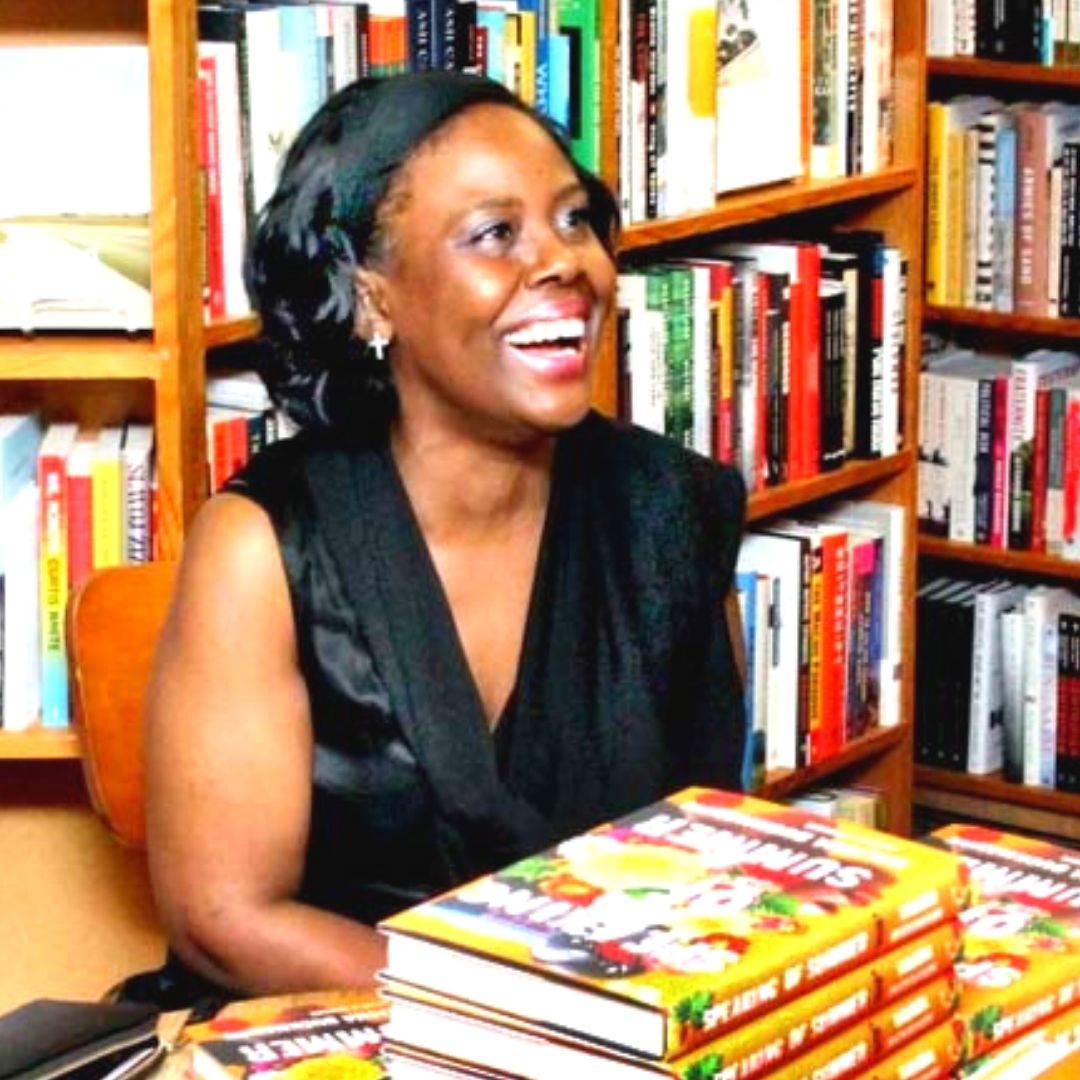
Personal Statement Workshop with Kalisha Buckhanon
We know personal essays and statements must answer questions, but the best of these writings leave their readers asking questions (i.e. wanting to know more and to continue reading). This course will train students to go above and beyond basic personal essay and statement elements on to creating powerful emotions and takeaways with their writing. The first half of the course will focus us on learning the tasks of essay and statement writing while we visit famous
nonfiction works. The last half of the course will continue to explore great works but also offer roundtable instructor and peer feedback on student essays or statements. This course is for anyone who wants to stand out in their personal writing, college or grad school applications and academic work.
*
This class has alreay ended.
Personal Statement Workshop with Kalisha Buckhanon
We know personal essays and statements must answer questions, but the best of these writings leave their readers asking questions (i.e. wanting to know more and to continue reading). This course will train students to go above and beyond basic personal essay and statement elements on to creating powerful emotions and takeaways with their writing. The first half of the course will focus us on learning the tasks of essay and statement writing while we visit famous
nonfiction works. The last half of the course will continue to explore great works but also offer roundtable instructor and peer feedback on student essays or statements. This course is for anyone who wants to stand out in their personal writing, college or grad school applications and academic work.
* This class has alreay ended.
Kalisha Buckhanon is from the American Midwest. She has master’s and bachelor’s degrees in English from University of Chicago with a Creative Writing M.F.A. from The New School in New York City. She is author of the novels Upstate, Conception, Solemn and Speaking of Summer. Her next novel, the mystery Running to Fall, comes September 2022 from the historic African American Literature Book Club.
Her debut novel Upstate is published in the UK and France, an American Library Association ALEX Award winner, a Hurston/Wright Foundation Debut Fiction Finalist, a New York Public Library’s Best Books for Teens and an inaugural “Literature for Justice” title for National Book Foundation. Her other honors include a Friends of American Writers Award for Conception, a Pushcart Prize nomination for her short story "Word," an Illinois Arts Council Fellowship in Prose and Phi Beta Kappa induction.
︎
小说
Fiction
︎
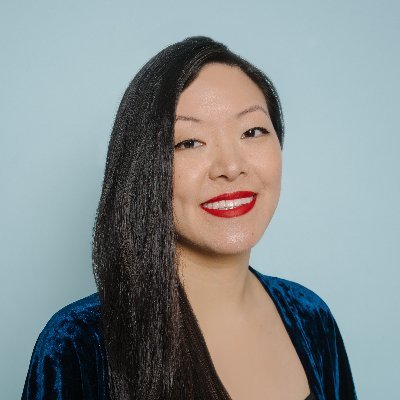
Generative Fiction Workshop with Elaine Hsieh Chou
The possibilities of flash fiction are endless. A flash fiction piece can be plot-driven, character-driven or setting-driven. But it can also be a question, a hypothesis, a dream, a memory, a feeling. Instead of being limiting, the short word count (500 to 1500 words) offers writers a limitless space of play and experimentation. Condensing or tightening a story’s focus can create an intense and singular reading experience that leaves a lasting impression. When we cut out what is unnecessary and only commit to what is necessary, when we depart from the conventional demands and structures of a short story, what magic can we create within the precious space we are given?
Students will write a new flash fiction piece every week based on a writing exercise/prompt. This class will introduce students to the workshop model, where they submit their own work for peer critique. Here we will learn how to give constructive feedback, how to interpret feedback and how to meaningfully apply it. We will also read and analyze examples of published flash fiction. Readings will include work by K-Ming Chang, Tania James, Jamaica Kincaid, Mahreen Sohail and more.
*This class has alreay ended.
Generative Fiction Workshop with Elaine Hsieh Chou
The possibilities of flash fiction are endless. A flash fiction piece can be plot-driven, character-driven or setting-driven. But it can also be a question, a hypothesis, a dream, a memory, a feeling. Instead of being limiting, the short word count (500 to 1500 words) offers writers a limitless space of play and experimentation. Condensing or tightening a story’s focus can create an intense and singular reading experience that leaves a lasting impression. When we cut out what is unnecessary and only commit to what is necessary, when we depart from the conventional demands and structures of a short story, what magic can we create within the precious space we are given?
Students will write a new flash fiction piece every week based on a writing exercise/prompt. This class will introduce students to the workshop model, where they submit their own work for peer critique. Here we will learn how to give constructive feedback, how to interpret feedback and how to meaningfully apply it. We will also read and analyze examples of published flash fiction. Readings will include work by K-Ming Chang, Tania James, Jamaica Kincaid, Mahreen Sohail and more.
*This class has alreay ended.
Elaine Hsieh Chou is a Taiwanese American writer from California. A Rona Jaffe Graduate Fellow at NYU and a NYSCA/NYFA Fellow, her short fiction appears in The Normal School, Black Warrior Review, Guernica, Tin House Online and Ploughshares. After living in Taipei and Paris, she is now based in New York. Her debut novel DISORIENTATION comes out from Penguin Press (US) on March 22, 2022 and and Picador (UK) on July 21, 2022.
Fiction Workshop with Yan Ge
Coming soon!
Yan Ge was born in Sichuan, China in 1984. She is a fiction writer in both Chinese and English and is the author of thirteen books in Chinese, including five novels. She has received numerous awards and was named by People’s Literature magazine as one of twenty future literature masters in China. Her work has been translated into eleven languages, including English, French and German. The English translation of her latest novel The Chilli Bean Paste Clan was published in 2018. Another translated novel, Strange Beasts of China, was published in 2020/2021; both won English PEN Translates Awards. Yan’s English writing has appeared in the New York Times, the Irish Times, TLS, the Stinging Fly and elsewhere. She has an MFA in Creative Writing from the University of East Anglia where she was the recipient of the UEA International Award 2018/19. Her English language debut short story collection Elsewhere will be published by Faber in the UK and Scribner in the USA in spring 2023, followed by a novel , Hotel Destination. Yan lives in Norwich with her husband and son. Yan has taught creative writing workshops and courses in various institutions and at literary festivals, including the National Center for Writing, the University of East Anglia, and the Ted Hughes Arvon Centre, among other places.
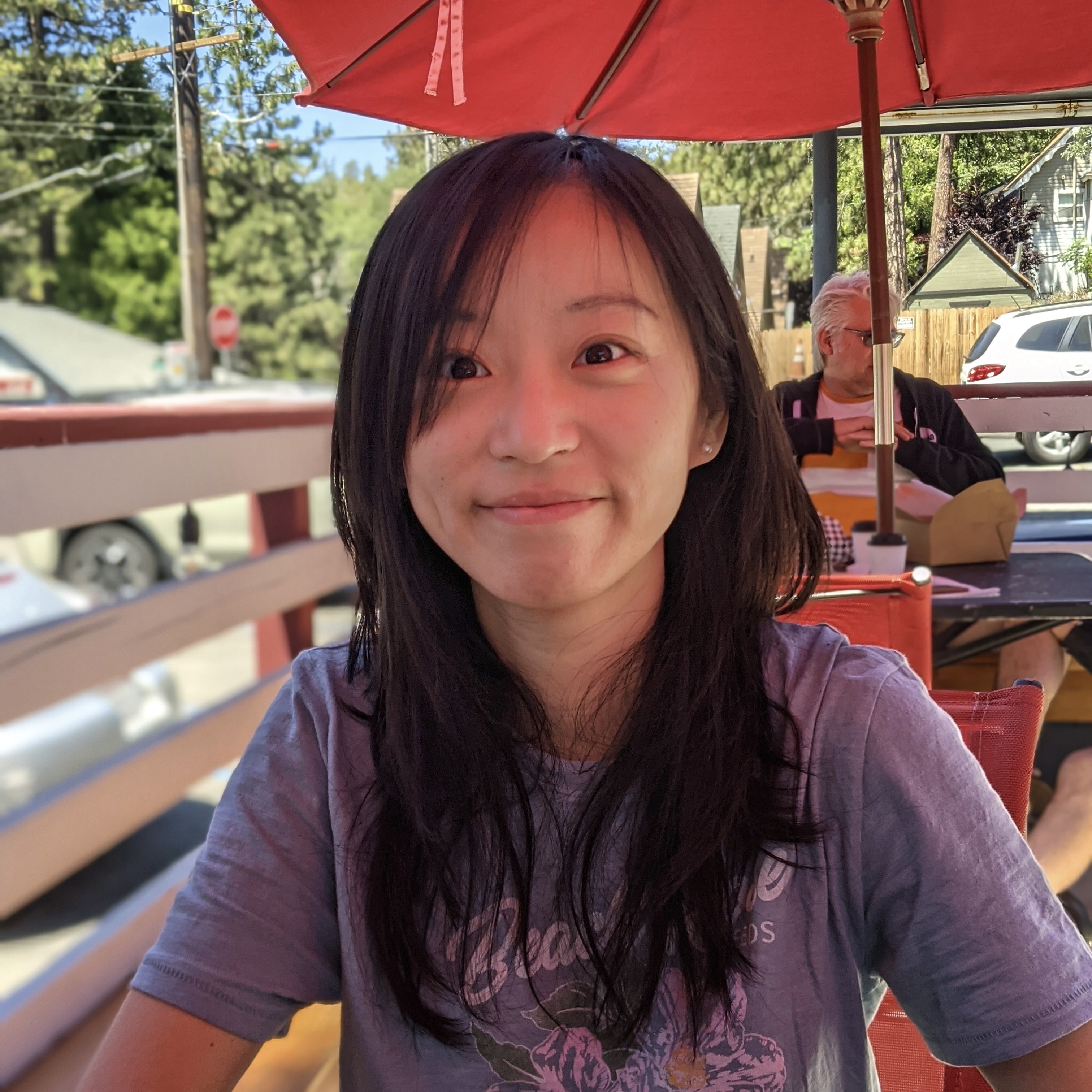
想象一座城市
我喜欢城市,你呢?在城市里,我可以藏身人群,可以和陌生人擦肩而过。我会猜测他们是谁,要去哪儿,会发生怎样的故事?很偶尔的,城市里特别戏剧性的场面会告诉我,之前的猜测是否准确。
在四周的课程里,我们会精读四个精彩绝伦的短篇小说,四位作者都和他们笔下的城市有着爱恨纠葛。(你当然有权不喜欢其中的任何一篇,但如果你真的不喜欢,我会很伤心的。)
我们的每节课分为两个部分。前半部分,我们会以写作者的眼光来读这些作品,换句话说,我们会找到写作者使用的“戏法”,然后纳为己用。具体而言,我们会看契弗如何构建纽约边郊的诡谲氛围,看事无巨细追随人物轨迹的琼斯如何做到一点都不让人厌烦,看巴克斯特怎么通过换一个主人公就让每个句子妙趣横生,看李翊云如何用北京的变化来制作一部人物的悲喜剧?
在后半部分,我们会讨论你的作品。写作说到底是一门实战的学问。只有读者能够判断我们耍的“戏法”是否成功。
最后提醒一句,想象中的城市常常比现实中更美好。
Jianan Qian writes in both Chinese and English. She has published four books in her native language Chinese. Among them, the nonfiction work "A Future that Concerns Me" was selected by Douban as one of the Top 10 Chinese nonfiction books in 2019. She has won a China Times Short Story Jury Prize in Taiwan. In English, she is a staff writer at The Millions. Her works have appeared in The New York Times, Granta, Guernica, Gulf Coast, and elsewhere. Her story "To the Dogs" won the O. Henry Prize in 2021. She has received fellowships from the Iowa Writers' Workshop, the McDonnell International Scholars' Academy at the Washington University in St. Louis, the University of Southern California, and the Summer Institute at UCLA. Currently, she is pursuing a Ph.D. in Literature and Creative Writing at the University of Southern California.
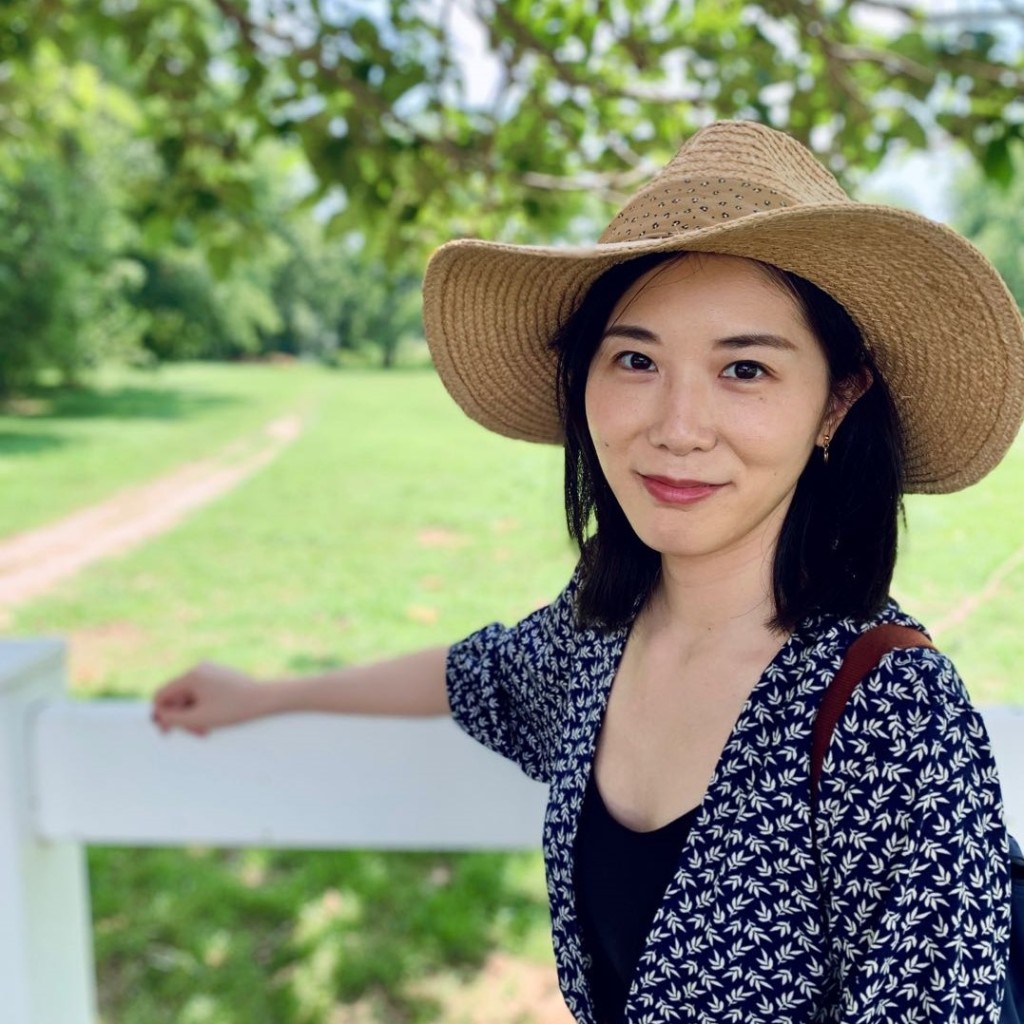
How to Tell An Authentic Chinese Story? Fiction Workshop with Na Zhong
在课程的前半段我们将⼀起细读来⾃哈⾦、李翊云、颜歌等中国作家的英⽂作品,也将对照亚裔作家Te-Ping Chen、Juliana Xuan Wang、Jia Tolentino等⼈书写中国的作品,除此之外,我们还会打开视野,阅读来⾃中国之外的英⽂写作者书写⾮主流经验的作品。我们既会讨论作品的主题、语⾔、⼈物、对话等基本元素,也将深⼊到⽂本根 部,思考作者的写作动机、故事与隐含读者的关系,梳理故事之所以成⽴的逻辑。在课堂的下半段,我们将对2-3名学员提交的作品进⾏讨论。⽤英⽂书写中国经验,与翻译有什么关系,⼜有什么不同?如何找到⾃⼰的写作⽴场和策略?如何让作品获得”Authenticity”?希望在⼯作坊结束时,你将找到⾃⼰的答案。
*This class has alreay ended.
Na Zhong is a writer and translator based in New York. Her words can be found or are forthcoming in Guernica, The Margins, Lit Hub, A Public Space, The Shanghai Literary Review, The Millions, among others. She is the Chinese translator of Sally Rooney's Conversations with Friends, Normal People, and Beautiful World, Where Are You?
︎
诗歌
Poetry
︎

Poetry Workshop with Shangyang Fang
Have you ever travelled to a foreign land, where you walked through pebbled streets of painted houses, sat beside the dried fountain of an intimate plaza, among vendors, balloons, and unnamable birds, and thought: ah, I wish I could live here, but well, I am just a fellow traveler? Often, we walk past the houses of poetry. We may read its delightful surfaces, but we never really enter the house—there is luminous music—a whole band is playing in the living room!
Reading a poem is a lived experience. In this class, we are not travelers or strangers in the land of poetry. We are the hosts. We live here. We inhabit poetry. By being the host, we have certain responsibilities—we must know where the rooms are, the stairs, decorations, the structure of the house. We’ll practice reading a poem aloud, or memorize and recite it. We’ll do a close reading of it. We’ll do an imitation of its form and style as a way to engage prosodic techniques. Yes, we will write our own poems.
Lessons will cover topics like: how to describe an orange? How to describe one’s feelings? Who is the “you” in a poem? Who am “I” even? How does the “I” reach “you”? We will also talk about narrative structure, metaphors, love poems, and elegies. We will learn how to speak again in the new language of poetry, as Valéry said, “poetry was a separate language or, more specifically, a language within a language.” By using this new language, hopefully, we can see a different world.
*This class has alreay ended.
Poetry Workshop with Shangyang Fang
Have you ever travelled to a foreign land, where you walked through pebbled streets of painted houses, sat beside the dried fountain of an intimate plaza, among vendors, balloons, and unnamable birds, and thought: ah, I wish I could live here, but well, I am just a fellow traveler? Often, we walk past the houses of poetry. We may read its delightful surfaces, but we never really enter the house—there is luminous music—a whole band is playing in the living room!
Reading a poem is a lived experience. In this class, we are not travelers or strangers in the land of poetry. We are the hosts. We live here. We inhabit poetry. By being the host, we have certain responsibilities—we must know where the rooms are, the stairs, decorations, the structure of the house. We’ll practice reading a poem aloud, or memorize and recite it. We’ll do a close reading of it. We’ll do an imitation of its form and style as a way to engage prosodic techniques. Yes, we will write our own poems.
Lessons will cover topics like: how to describe an orange? How to describe one’s feelings? Who is the “you” in a poem? Who am “I” even? How does the “I” reach “you”? We will also talk about narrative structure, metaphors, love poems, and elegies. We will learn how to speak again in the new language of poetry, as Valéry said, “poetry was a separate language or, more specifically, a language within a language.” By using this new language, hopefully, we can see a different world.
*This class has alreay ended.
Poetry Workshop with Shangyang Fang
Have you ever travelled to a foreign land, where you walked through pebbled streets of painted houses, sat beside the dried fountain of an intimate plaza, among vendors, balloons, and unnamable birds, and thought: ah, I wish I could live here, but well, I am just a fellow traveler? Often, we walk past the houses of poetry. We may read its delightful surfaces, but we never really enter the house—there is luminous music—a whole band is playing in the living room!
Reading a poem is a lived experience. In this class, we are not travelers or strangers in the land of poetry. We are the hosts. We live here. We inhabit poetry. By being the host, we have certain responsibilities—we must know where the rooms are, the stairs, decorations, the structure of the house. We’ll practice reading a poem aloud, or memorize and recite it. We’ll do a close reading of it. We’ll do an imitation of its form and style as a way to engage prosodic techniques. Yes, we will write our own poems.
Lessons will cover topics like: how to describe an orange? How to describe one’s feelings? Who is the “you” in a poem? Who am “I” even? How does the “I” reach “you”? We will also talk about narrative structure, metaphors, love poems, and elegies. We will learn how to speak again in the new language of poetry, as Valéry said, “poetry was a separate language or, more specifically, a language within a language.” By using this new language, hopefully, we can see a different world.
*This class has alreay ended.
Shangyang Fang grew up in Chengdu, China, and composes poems both in English and Chinese. While studying civil engineering at the University of Illinois, Urbana-Champaign, he realized his bigger passion lies in the architecture of language and is now a poetry fellow at Michener Center for Writers. He is the recipient of the Joy Harjo Poetry Award and Gregory O’Donoghue International Poetry Prize. His name, Shangyang, originating from Chinese mythology, was a one-legged bird whose dance brought forth flood and rain. He is the author of Bury the Mountain (Copper Canyon Press).
︎
Experimental Writing
︎

Experimental writing and Language-based Art workshop
This class is concerned with investigating the instances and ways in which language, writing, and literature intersect with visual art practices, experimental music, and avant-garde cinema. We will look at the work of historical and contemporary artists, filmmakers, writers, and musicians whose practices are especially concerned with the materiality of language—language as image, as sound, as directive, etc.—as well as with working across multiple languages. The concept of language will be defined, questioned, amended, and problematized across media and genre through group discussions and self directed student projects.
This course will introduce students to a wide spectrum of experimental literary and language-based practices. Class discussions will focus on helping students to develop critical thinking through the formal, historical, and theoretical analysis of course materials, with homework assignments and student projects acting as extensions of our discussions.
*This class has alreay ended.
Nathanael Jones is an Afro-Caribbean Canadian writer and artist born in Montreal and currently based in Chicago, USA. His practice is interested in probing the spaces between poetry, performance, installation, and experimental music in order to draw attention to the structures and systems which make up our world. He holds a Bachelor of Fine Arts (Interdisciplinary) from NSCAD University and an MFA in Writing from the School of the Art Institute of Chicago (SAIC). He has performed and exhibited at the Chicago Cultural Center, Experimental Sound Studio, Sullivan Galleries, Elastic Arts, Anna Leonowens Gallery, Khyber Centre for the Arts, 062 Gallery, Tiger Strikes Asteroid, Averill and Bernard Leviton Gallery. His work has been published online and in print with Aurochs, DREGINALD, Infinity's Kitchen, Parallax (Singing Saw Press), Damask Press, and is forthcoming from Partial Press. He is the recipient of a Carol Becker-Dean's Merit Scholarship, an SAIC Incentive Scholarship, and was an SAIC Writing Fellow.

Queering the Narrative: Speculative Fiction Workshop with Future Host
This course teaches you how to write speculative fiction and cultivate a voice. Each week we will be dedicated to creating something about your creature of incarnation from the Book of Mountains and Seas. As the class proceeds, we will be led by your celestial counterpart, to find love, via blood and guts, fight and flee, to eventually establish oneself as a creature between heaven and earth. Through embodying a radically different body, we will evision a way of existence beyond compulsory heterosexuality, misogynistic subjugation and anthropocentrism. By navigating and surviving an imaginary landscape, we will find resonance with the surroundings and make intimate connections to our immediate and inherited history. We write to allow an alternative narrative of self to emerge.
Our writing will be anachronistic, treasonous and disruptive. We will be experimenting with pronouns or multitudes. By experimenting with erotica we channel the orgasmaic impusles and bring about pleasure. By looking at different genres: conspiracy theory, political manifesto or even astrological reading, we learn how to bend reality towards us. By deconstructing historical materials and problematizing archaeological findings, we recreate cults and myths. Through somatic exercises we will be evoking skeletal, muscular and cellular memories and anchor ourselves in the corporeal reality.
*This class has alreay ended.
Future Host- Tingying Ma is a writer and artist. Tingying Ma’s work has been presented at the Museum of Chinese in America, New York; International Studio and Curatorial Program (ISCP), New York; Ullens Center of Contemporary Art (UCCA), Beijing; Ming Contemporary Art Museum (MCAM), Shanghai. A finalist for the 2018 Huayu Art Award, her practice has been supported by Shandaken Projects: Governors Island and LMCC: Arts Center. Her writing has been published by Wendy’s Subway, New York, T Magazine China, LEAP, The Broadcast by Pioneer Works.
︎
Masterclass/Lecture
︎

Jessica Lanay 的诗
ANTI-APOLOGY
For Sebastian
I had the abortion in Texas, of all places. A person, just a person now, left me at the clinic, and went to work, after accusing me of sleeping with her husband. There was so much milk, blood, and sugar. Is abandonment a medical history? Because what is in my veins holds. I shook you from my tree when you were still mostly seed. I bled down desert purple highways; my body said no as a swamped environment; the mother next to me on the city bus tearing up, I was so pale, I was disappearing. This isn’t an apology, but I keep explaining what happens to poor Black women who are unexpectedly with child. I want to take a poll of how many of us sleep on couches while trying our best to be so invisible that we didn’t need a welcome. You are not here because what I had to give you was still a pile of other’s failures and my misunderstanding about my responsibility to those failures. The only time I understood femininity was when I had something I needed to steal; my need made it mine. I want you to understand something about your mother, something in their body died before you blinked in the fish net; I was already a sky with rare rains and exoskeletal life. I hear you giggling in my dreams. I watch you twist the bathroom door handle. And while my choice was correct — I wonder at the difference between terror and being forgiven.
Jessica Lanay (She/They) is a Black feminist interdisciplinary writer, poet, and art journalist raised in Key West, Florida. Their/Her debut hybrid poetry collection, am•phib•ian won the 2020 Naomi Long Madgett Poetry Prize judged by Toi Derricotte from Broadside Lotus Press. They/She is a Cave Canem and Callaloo Fellow. Their/Her poetry can be found in Indiana Review, Prairie Schooner, Poet Lore, and others. They/She has performed her poetry at the Brooklyn Museum, The Cave Canem and Bowery Presents First Book series, and with Brooklyn Poets. Their/Her personal and craft essays can be found in Salt Hill Journal and Black Warrior Review. Lanay's art writing can currently be found in BOMB Magazine where she has interviewed artists such as El Anatsui, Howardena Pindell, Vanessa German, and Shikeith, among others. Their/Her art criticism can also be found in catalog contributions for The Andy Warhol Museum's exhibition Fantasy America, Nona Faustine’s monograph White Shoes, and the Washington Project for the Arts exhibition curated by Tsedaye Makonnen Black Women As/And The Living Archive.
Jessica Lanay's writing practice is rooted in Black feminist practice, attention to interior cadence, and experimentation. Influenced by poets such as Pat Parker, Helen Oyeyemi, Wanda Coleman, and Bhanu Kapil, Lanay is interested in the presence of the spoken voice, and hairpin turn juxtapositions. Her writing emerges from a desire to reconstruct complicated and often unnamable emotions through text; she believes that the confessional and the personal femme perspective is inherently political and immediately important.
In Lanay's session she will analyze poems by Pat Parker, Bhanu Kapil, and Wanda Coleman and how each poet constructs their personal interior mental and emotional space and then she will talk briefly about her creative process. She will leave time for questions and conversation from participants.

To A False Memory
During a reading in 2015, in the middle of reading a new chapter I had written for my disappearing book, Ghostmaker, I stopped. I stayed quiet and stared into the audience. After a moment, I said out loud, to them, to me: “Wait. None of this happened.” And the way I write (and in ways, the way I live) has never been the same.
I was reading a scene I had written, a setting I’ve written about countless times before. Of my family—my parents, my brother, me—at the dinner table having a conversation. When I stopped, it was a moment in the scene when my father is saying something to me, perhaps something simple like, “Why aren’t you eating? Eat more!”
But this moment had never happened. The fact is, my parents don’t speak English so they couldn’t have said that. It then dawned on me—all of my memories have been edited, translated, stored in English. None of what I remember is the truth. They’re all made up. Rewritten. By me.
In this lecture, I will discuss how our ideas of truth and right handcuff our work as writers, make us less curious as readers, and how letting go of a Platonic idea of them can take our writing and reading skills to the next necessary phase.
A phase that is, ironically, filled with more honesty and humility.
This is especially true for bilingual or foreign language writers, those of us constantly trying to conform to a language that does not have room for our stories and memories.
Chiwan Choi

恐怖小说工作坊
在这门课里他将带我们一起深入研究恐怖小说:那些不可思议的、无法解释的、真正奇特的故事。是什么让人毛骨悚然,是什么让我们永远无法审视。
为什么要探索怪奇小说?为什么要花时间研究那些让我们不安和害怕的东西?无论你是想发表自己的小说,还是只是想在篝火聚会时吓吓你的朋友,怪奇小说都为每个人提供了讲故事的方法。怪奇故事探索的是我们内心深层隐藏的本性、恐惧,和我们想象力的最远可及之处。怪奇故事以它自己诡谲的方式,触及存在的终极奥秘。
我们将利用在这一周的阅读中学到的东西写出我们自己的怪奇故事。在我们的工作坊里,我们将以一种反思的、建设性的心态,探讨如何编辑和修改彼此的作品。这是一个很好的观察别人如何阅读你自己创作的机会。我们将带着开放的心态去面对自己作品的可能性。
参加这次工作坊,你需要在上课前提前阅读以下两则小说(在公号二条推送恐怖故事包里可找到)
“Younger” (Brian Evenson)
“Worries of a Family Man” (Franz Kafka)
Patrick Doerksen
是一位居住在布鲁克林的作家。他曾获得纽约大学创意写作MFA全额奖金并跟随Joyce Carol Oates和Jonathan Safran Foer写作两年。
Partrick曾获得加州大学圣地亚哥分校骑士威尔海姆基金奖金Constance Saltonstall艺术基金会年度奖金担任驻留作家。
他的作品广泛的发表于美国著名文学杂志和期刊,包括Mysterion、Aurealis和企鹅出版《Journey PrizeAnthology》等等。
Patrick曾任教于纽约大学和罗斯福岛Coler Goldwater Hospital医院艺术疗愈项目。

从罗伯—格里耶到罗伯—格里耶
今年是法国新小说作家阿兰•罗伯—格里耶诞辰一百周年,也是陈侗从事出版三十周年。他出版的第一本书是罗伯—格里耶的《重现的镜子》,随后便是他的其他没有被翻译成中文的作品,以及更多由午夜出版社出版的作品,包括艾什诺兹、图森等相对年轻的作家的作品。陈侗不仅没有通过出版它们收获经济效益,还一直以自己的绘画所得补贴出版,但正是这样的付出令读者受益,而支撑陈侗的大慨就是出版所获得的这种“社会效益”。
这个大师课当然不是去讨论所谓“独立出版”行为的精神性,而是更多涉及出版以及文学推广的策略。“从罗伯—格里耶到罗伯—格里耶”所要表达的是如何在艺术的层面去理解文学,如何把文学的发展史在当代的意义上理解为艺术的发展史。如果说罗伯—格里耶的文学思想和理论在今天仍然具有意义,那么,对它们的实践就仍然是在解决那些基本的问题,例如作品的现实性与巴尔扎克式的现实主义的区别 ,例如自传与自传性写作的区别。
从文学推广的角度来说,传统的方式似乎也无法应对时代的变化,所以陈侗也从艺术推广的体制中获得启发,发展了自己设想的立体或网状的方式,这也构成了他的“用文学的方式做艺术,用艺术的方式做文学”的基本策略。“从罗伯—格里耶到罗伯—格里耶”向我们展现的正是当代语境下相对特别的文化生产逻辑,陈侗的工作就是始终让这个逻辑处于罗伯—格里耶的作品、理论和经历所涉及的方面,从而不让自己变成一个完完全全的“出版人”。
陈侗
是艺术家,广州美术学院教师,但他的另一个身份是“出版人”。
博尔赫斯书店及其艺术机构的创办人,广州美术学院教授,录像局联合创办人,“实验艺术丛书”、“午夜文丛”、“艺术迷宫”、“享乐者”、“罗伯-格里耶研究资料丛书”等多种丛书的策划人和编辑 。
以中国的体制来看,“出版人”如果不是出版社的负责人,便是“二渠道书商”,而这都不属于陈侗。也许把陈侗的出版行为放在民国时候看倒是比较好解释的,那时候的人出于兴趣和责任热衷于引进外国作品,在陈侗自己看来,他所做的工作不过就是继承了民国的作风。
